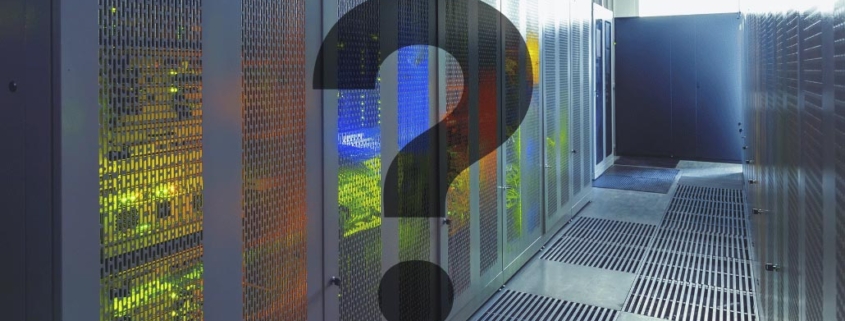US mandates crypto energy reporting: will data centers be next?
Rising concerns about cryptocurrency mining energy use have led the US Energy Information Administration (EIA) to launch a six-month emergency data reporting mandate (on January 26, 2024) to obtain information from 82 cryptocurrency mining companies. The emergency order which was approved by the Office of Management and Budget (OMB) requires cryptocurrency miners to provide information detailing their monthly energy consumption, average and maximum electricity demand, energy suppliers, mining unit counts, and the hash rate (compute power of a blockchain network) at each of their operating locations from February 2024 to July 2024. The order is expected to capture information from 150 facilities.
At the end of February 2024, the initiative (survey) was temporarily put on hold after a lawsuit brought by a cryptocurrency association and a bitcoin mining company alleged that the data collection initiative could harm businesses by forcing them to divulge confidential and sensitive information. The lawsuit contested the notion that cryptocurrency mining operations pose a danger to the reliability of the grid, which will now have to be proven in court.
While the legal action has halted the survey for at least a month, it does not dispute that the OBR and the EIA have the legal mechanisms available to launch this initiative — and the same mechanisms can be applied to other sectors of the data center industry.
EIA estimates rise in crypto mining energy use
The EIA administrator requested emergency reporting authority from the OMB because they and their staff concluded that escalating cryptocurrency mining energy demand in the US could reasonably result in public harm for the following reasons:
- Rising Bitcoin prices risk more electricity use as miners expand their operations.
- The increased energy demand is occurring without an accompanying increase in energy supply, which is likely to increase energy prices and grid instability.
- There is no data available to assess the speed and extent of the potential energy use growth, making it difficult to mitigate the potential public harm.
The order was generated based on data models developed under an EIA in-depth analysis of cryptocurrency mining activities that estimated that these operations were responsible for 0.6% to 2.3% of US electricity consumption and that energy consumption was likely to grow rapidly (see Tracking electricity consumption from US cryptocurrency mining operations). In addition, concerns were expressed by members of Congress and the Administration (see First signs of federal data center reporting mandates appear in US) about cryptocurrency mining energy use, while grid planners have indicated that the growth in energy consumption will negatively affect electricity supply costs, the quantity of reserve supply, grid reliability and greenhouse gas emissions.
To continue data collection beyond the six-month emergency order, the EIA is currently using the agency’s authority to request a three-year extension to the data collection period.
Energy reporting for traditional data centers likely
While the emergency order warrants the data center industry’s attention, it is the fact that the EIA has the authority to prescribe major energy users to supply this information that will be of real concern.
The rapid growth of conventional data center operations has increasingly been under public scrutiny, particularly in regard to data center expansion in the US. The US Office of Science and Technology Policy report (reviewed in First signs of federal data center reporting mandates appear in US) estimated that the energy consumption of traditional data centers was likely to be equivalent to the energy consumption of cryptocurrency mining operations, making traditional data centers a logical next target for facility and energy use reporting.
Data center operators should not be surprised if the EIA turns its attention to energy consumption in traditional data centers, proposing regulations for reporting sometime in 2024. The buildout of traditional data centers is eliciting the same criticisms levelled at cryptocurrency mining operations: they reduce available electricity supply and grid reliability, raise electricity costs, and increase emissions due to increased demand on fossil fuel-powered generation facilities. The final push for the EIA to act is likely to be the EU’s publication of region-wide data center energy use as reported under the EED (which is still being finalized), and associated regulations.
Conclusion
US data center operators should prepare for a potential EIA-mandated energy consumption reporting regulation in 2024. The reporting requirements are likely to resemble those mandated for cryptocurrency mining operations: facility information, energy consumption and demand data, and a count of installed equipment. Two items that will have to be addressed in the regulatory proposal are the criteria that data centers are required to report, such as data center type, installed IT capacity, installed power capacity; and the reporting frequency (monthly, quarterly or annually). Any US data center energy consumption reporting regulation will require publication in the US’ Federal Register and a comment period, giving the industry an opportunity to review and shape the final reporting requirements.
The Uptime Intelligence View
US data center operators have been sanguine about the potential for government regulation mandating data reporting or minimum performance requirements for key metrics. Unfortunately, the regulation establishing the US EIA contains a vehicle (15 USC 772) that authorizes the EIA to compel major energy users to report energy consumption and relevant facility data. Given the current public, legislator and regulator concerns relating to the projected growth of data center energy demand, which is anticipated to accelerate with the growth of AI offerings, it is highly likely that the EIA will propose a regulation mandating energy consumption reporting for data centers in 2024.
Addendum
The US Energy Information Administration (EIA) and Bitcoin industry groups have reached a settlement in the Bitcoin industry group’s lawsuit. EIA has agreed to “destroy” all the data collected. Under the settlement agreement, EIA intends to use its authority 15 USC 772 (Administrators information-gathering power) to request a three-year data collection period (Federal Register Vol. 89 No. 28; February 9, 2024). This process will allow the industry to provide comments and shape the requirements of the data collection process.











